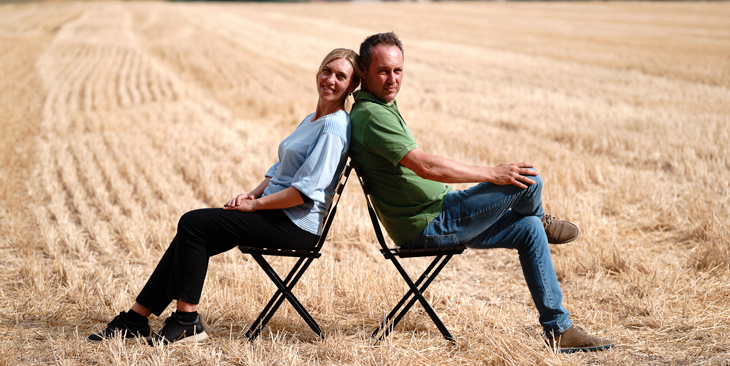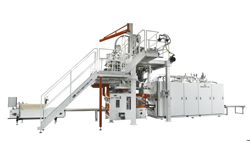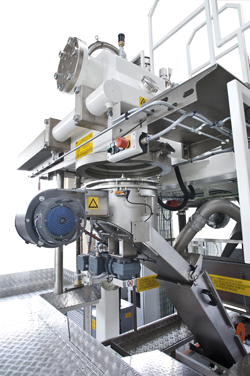
Let’s have a chat with Massimo Porcarelli and his wife Lorenza Donà, owners of the artisanal pasta making factory Fiordimonte.

It is said that you “are naturally inclined to genuineness”, you are not afraid of talking about the harm done to plantations treated with pesticides, thus your goal is surely clear. Has it always been like this or is it a new attitude?
We are young pasta makers, as we have been manufacturing dry pasta for six years, when we purchased a small artisan factory which used to produce only egg pasta. Just from the very beginning we have established our Company mission that can be summed up in the brand pay off "GENUINI PER VOCAZIONE" (genuine by vocation). Our aim was and still is to offer our customers an organic and sustainable product made with 100% excellent Italian raw materials, no compromise. Our pasta must be tasty, with good cooking properties and the right glutinosity as well as rough and porose to better blend with sauces. Many have included the organic line as a sales opportunity, whereas we have done so because we believe that a company should also operate to help improve our lives and the planet. Organic pasta is good for our health and the environment as well; its nutritional values are qualitatively better than those of pasta made with semolina from conventional grains. Organic farming does not allow highly polluting, toxic pesticides and chemical weedkillers and, although it costs certainly more, I believe this is amply repaid by the positive benefits we gain. Consequently, this is not a change of attitude, it’s our way of thinking.

What are the entailments and the real commitments to guarantee an authentic genuine pasta? Do the production facilities play their part in this project? Why?
The genuineness of a product does not only depend on a careful selection of raw materials and packaging but is strongly influenced also by the production processes and therefore the machinery used. Over the years, we have perfected our processing method, named “FIORDIMONTE ARTISAN METHOD”, which boasts four fundamental aspects: using coarse grained organic semolina, kneading with cold water, bronze drawing and statically drying at low temperatures. The processing method must be accurate and repetitive and respect process parameters such as time, temperature and pressure; to do all this, it is necessary to have safe, reliable, precise and highly technological machines, in other words, STORCI machinery.
You live and work in an extraordinary beautiful, slow-paced area. Are you your own product but above all your land?
We identify more with the product which allows us to express and communicate our values as well those of our region, the right place to contextualise and enhance our work.
In view of all this, why did you choose Storci? How will your production be affected by the new Storci line? What are your expectations?
After visiting the company and discussing the technical aspects of the process and the specifications of the various machines, the skills and professionalism of all the staff struck us very positively. We soon realised that the ultimate aim of STORCI was not just to sell us the equipment necessary for the production of long and short dry pasta, but to provide us also with the essential know-how and help us make the right technical choices for our product requirements. In addition, I can tell you that, after examining some of the machines under construction, I realised that the right technical partner for our investment had inevitably to be STORCI, as their technical solutions, quality of the machine processing, as well as assembly, mechanical and electrical components were all top-notch. The plant will produce long and short pasta shapes; we consequently expect a substantial increase in the quality and quantity of our current semolina production. All this will allow us to be more competitive, meeting the growing demand for our products and taking on new markets.